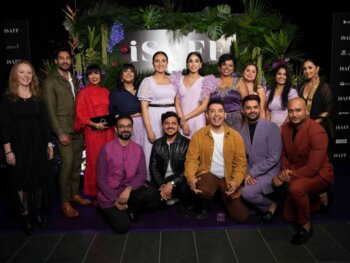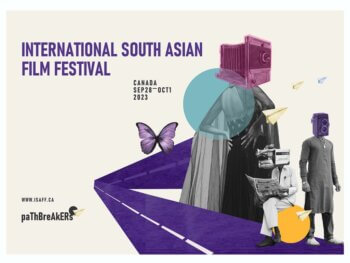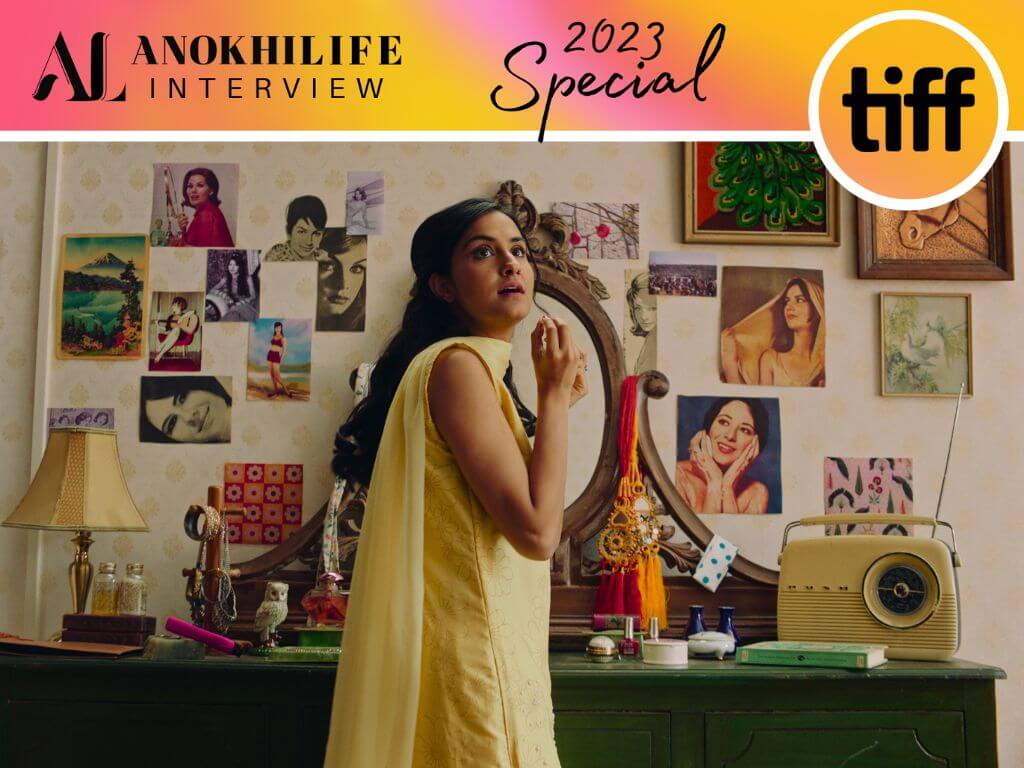
TIFF 2023: ‘The Queen of My Dreams’ Reigns Over TIFF With Style, Wit And Heart
Entertainment Oct 13, 2023
The stars and director of this time-jumping coming-of-age dramedy hold court with Anokhi Life.
Among the most striking, charming, poignant entries at this past Toronto International Film Fest, writer-director Fawzia Mirza’s debut feature The Queen of My Dreams is a story of mothers and daughters — what divides them and what binds them together.
We open in 1999, in Canada, as queer Muslim grad student Azra (The Sex Lives of College Girls breakout Amrit Kaur) is living with her girlfriend, deeply estranged from her disapproving mum Mariam (Ms. Marvel’s Nimra Bucha). But after Azra’s father Hassan (Transplant’s Hamza Haq) dies suddenly, the family must reunite in Pakistan.
From here, the story splits in two, jumping back and forth between 1999 and 1969 Karachi, where we find a young, rebellious Mariam (also played by Kaur) bucking expectations and struggling to make her way in the world as she courts the man she’ll eventually marry (Haq, also pulling double duty). Bitterly at odds in ’99, the film’s dual timelines show us just how similar mother and daughter truly are — in terms of the struggles they face, and their shared obsession with Bollywood queen Sharmila Tagore.
Adapted from Mirza’s own, semi-autobiographical stage show Me, My Mom & Sharmila, it’s a rich, sprawling story that Mirza weaves together with wit, style and heart. During the festival, Anokhi Life was granted an audience with the Queen of My Dreams team at Toronto’s Royal Blue Hotel.
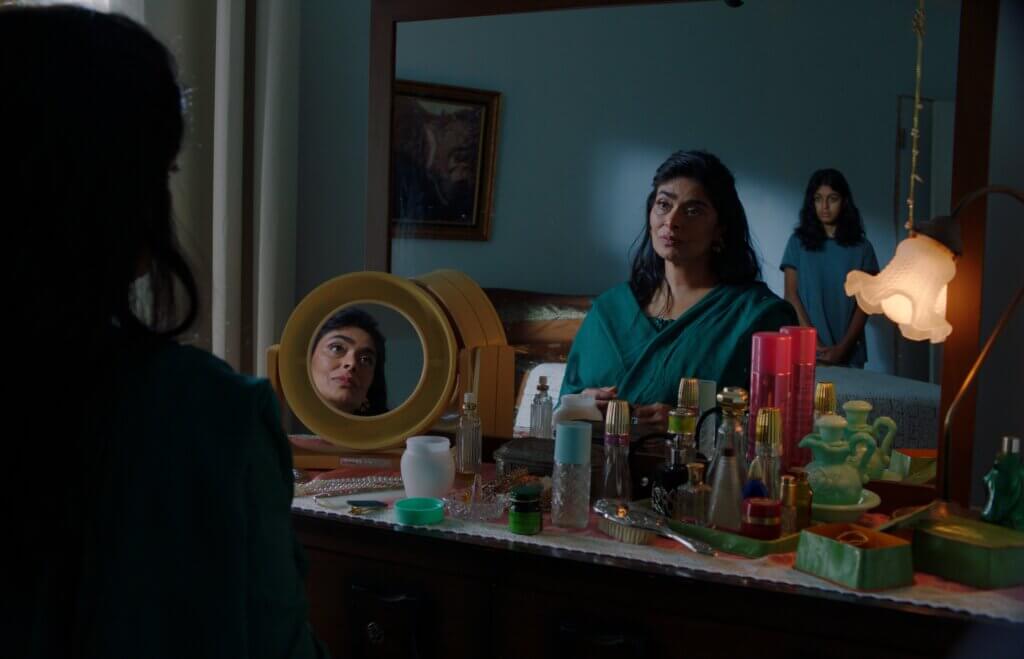
The film just had its world premiere at TIFF. Fawzia, after working on something like this for so long, what was it like finally seeing The Queen of My Dreams with an audience?
Fawzia Mirza: I’ve seen it many, many times, at every stage, and every time I watch it, I see what it is but also what it was. But I was so excited to watch it with everybody in the theatre — watch it with the people who made it, watch it with the people who just trusted us and trusted me in Canada and Pakistan, not knowing what the other part of the story was. There are so many people who were in town for the screening. It was pretty magical.
Watching the movie, I found myself thinking that we all have the experience at some point in our lives where our parents go from this almost elemental, larger-than-life force, to the realization that, “Oh, they’re just people. They don’t have anything figured out — just like I don’t have anything figured out.” Does that resonate with any of you?
Hamza Haq: I feel like I had the benefit of, a couple years back, becoming a father — and then for a couple years before that my acting coach saying that holding our parents on this pedestal is holding back out artistry, because we are keeping parts of ourselves hidden in order to honour the idea of our parents as opposed to just accepting their humanity.
I feel like for me, the turning point was when I became a father and was like, “Oh, I don’t have anything together.” I can’t tell this lie of “I’m a perfect person” to my kid. And I suppose my father deserves that sort of release as well. If I think he’s some kind of divine entity, that’s got to be a lot of pressure on him as well, and on my mom. I think it makes everyone’s life that much easier if you can just accept their humanity for what it is — because then you actually have a chance of building a real relationship; it’s something that you know, as opposed to just having faith it’s going to work out. It becomes a very tangible thing.
Fawzia Mirza: . . . a tangible thing with that other person and also with yourself. The journey for me with this film, the reason I went back and investigated my mother and mothers and motherland was a search for self-love, because as I was trying to love myself and with all of these identities, I realized, “Oh wait, this is bigger than me.” There’s all these other things I’m holding onto that I need to just let go of in order to love the self.
Amrit Kaur: And I can’t tell the truth of my relationship with family if I think of them as perfect. If I think of them as perfect, then I won’t be able to reveal how I’m so much like them, which I don’t want to admit. Or I won’t be able to admit what I don’t like about them and that they are flawed. So, I think that was a very beautiful question that you asked.
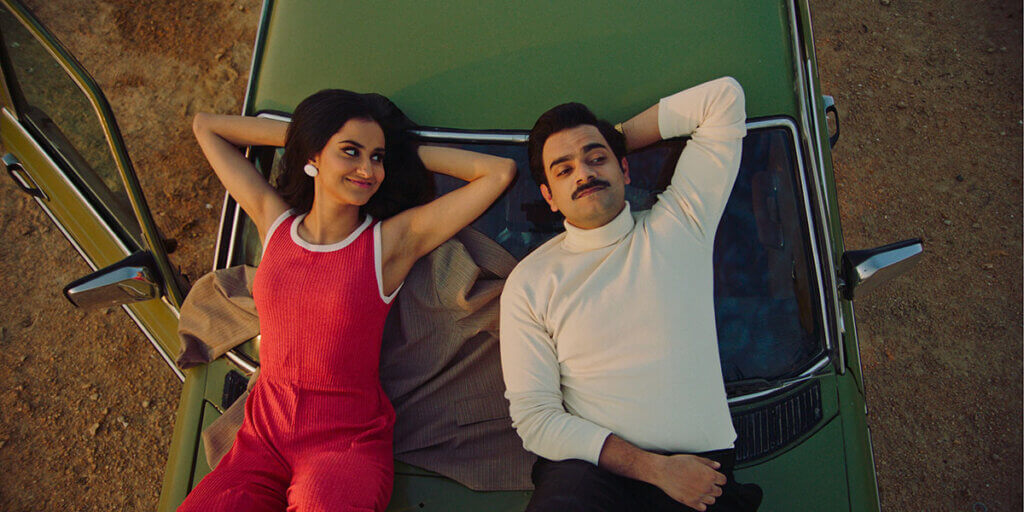
How did you go about crafting the visual language of this film, knowing when to deploy those very colourful stylistic flourishes in a way that doesn’t overwhelm or obscure the story?
Fawzia Mirza: I actually come from a comedy background. So for me, there’s comedy in everything . . . I love overhead shots, and I love tableaus. So there was some of that in the script. Then some of that was discovered as I was working with our incredible cinematographer, Matt Irwin. And then one of the stylistic pieces was the quick cuts, which, you know, you could say come from Edgar Wright’s work, like Shaun of the Dead, Hot Fuzz, Scott Pilgrim . . . I love some of those style pieces and I love genre blending. Because we are not and don’t have to be just one thing. So why does the art that we watch and create have to be just one thing?
Amrit and Nimra, you’re playing the same character at different points in her life. Did you work with each other to kind of pass the baton?
Amrit Kaur: I had a different experience than Nimra [laughs]. Like, if there could be a stalker, that would be me. Every day, before I would shoot [the Mariam scenes], in the makeup chair and hair chair, I would literally listen to videos and interviews Nimra has done. I’ve probably watched every single one to get the accent right, and so I was a huge stalker and creeper.
Nimra Bucha: Acting is not so much for me that I need to believe what I’m doing. At the moment that I’m working, I don’t have a need to do anything other than be there and just see what happens . . . We both were aiming to do Mariam, and Mariam was very clear on the page. I think [the character of] Azra was much more organic, but I thought that Mariam was very much on the page . . . I do think that when I’d go home, I did think, “How is this going to be believable?”
Amrit Kaur: Nimra has this thing, she’s such a BIG light, and that’s why she’s perfect as Mariam, because Mariam is a BIG light. That was something I saw from the first day I met Nimra. There was this big, big light coming in every room. And everyone was like, “Who is this person?” Mariam should feel that way as well.
Nimra Bucha: But it’s also how we see our mothers. We see them as that big light. They are much bigger to us than they are in the world. Probably that’s what you were seeing as well. But to me, she was very flawed. She was messing up A LOT. Some of those bits are quite hard to watch.
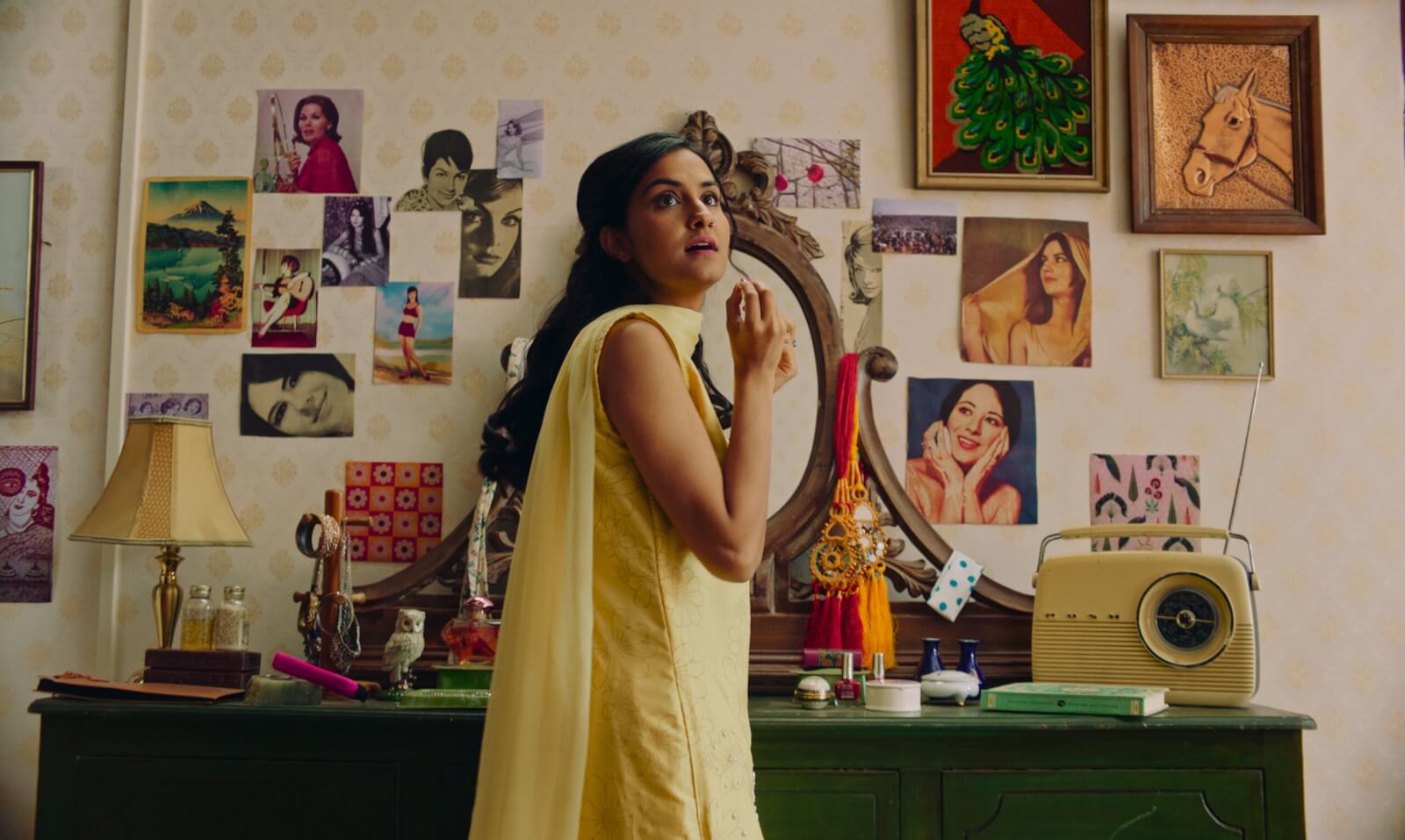
Fawzia, what is the value of telling a story like this, which is so fraught with family trauma and a big tragic loss at the centre of it, but handling everything with a light, comedic touch as opposed to being super-solemn and super-serious?
Fawzia Mirza: How many times have we been at a funeral and we’re telling jokes and crying at the same time about the person we lost? Standup comedy is so much about spinning the tragedy of our lives into something we can make sense of, and bringing joy to others through the laughter. So that, to me, is one of my driving forces.
And I do think that, as a queer Muslim person, there isn’t enough representation that is depicted in that way. I’m just so tired of our trauma — we live our trauma every day, we see our trauma, we know our trauma; there are so many filmmakers that are not necessarily of the [queer Muslim] world and that’s the thing they want to focus on. [But] I see all of their light, and I want that light to shine for all of us. Because we need it and we deserve it.
Midway through the festival, The Queen of My Dreams was picked up by Cineplex Pictures for a Canadian theatrical release, tentatively set for early 2024. The film will subsequently stream on Crave and air on CBC.
Main Image Photo Credit: www.tiff.net
Matthew Currie
Author
A long-standing entertainment journalist, Currie is a graduate of the Professional Writing program at Toronto’s York University. He has spent the past number of years working as a freelancer for ANOKHI and for diverse publications such as Sharp, TV Week, CAA’s Westworld and BC Business. Currie ...





































































































